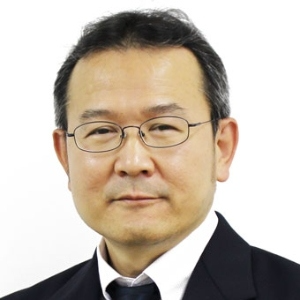Title : Stem cells in regeneration and cancer of epithelia
Abstract:
The skin is maintained by self-renewal, proliferation, and differentiation of tissue-specific stem cells. We have shown previously that the transcription factor p63 plays an essential role in these processes. Although p63 has high sequence and structural similarities to the tumor suppressor p53, it is rarely mutated in human cancers. Unlike p53, however, p63 is frequently upregulated in various epithelial cancers, leading to the current working hypothesis in the field that p63 plays predominantly an oncogenic role when it is overexpressed. However, transgenic mice overexpressing p63 do not produce spontaneous tumors, raising the possibility that an alterative mechanism of p63 exists in cancer development. By creating a novel mouse model of p63 mutant, we discovered that aberrant splicing of p63 sensitizes the epithelial stem cells to tumorigenesis. The greater details of our findings will be presented later today by Keshia Pitt, a talented PhD student in my lab, who is leading the study of the novel mechanism of the stem cell factor p63-mediated cancer development in epithelia.Expression of p63 can be utilized as a biomarker for the enrichment of epithelial stem cells when it is appropriately monitored. We have found recently that a small molecule compound RepSox stabilizes p63 proteins, allowing us to make the following two challenging tasks possible. First, despite its importance in basic research of regenerative medicine, it is difficult to grow epithelial stem cells of mouse origin, including the skin stem cells, as they rapidly senesce and terminal differentiate. However, we found that the use of RepSox enables expansion of a variety of primary mouse epithelial stem cells long-term while avoiding tumorigenesis. Second, autologous skin grafts in human have been prepared as epidermal sheets cultivated on top of murine-derived 3T3-J2 feeder cells since 1970.3T3-J2 cells possess indispensable properties to allow skin epidermal stem cells to grow while minimizing their spontaneous differentiation. However, the use of feeder cells of mouse origin has been the debate involving ethical concerns. We found that the use of RepSox can replace 3T3-J2 cells with human feeder cells such as dermal fibroblasts and adipocyte-derived mesenchyme. Thus, the “Boston RepSox” protocol is useful to accelerate both basic research on stem cells using mouse models and a “complete” autologous skin grafting in human.



